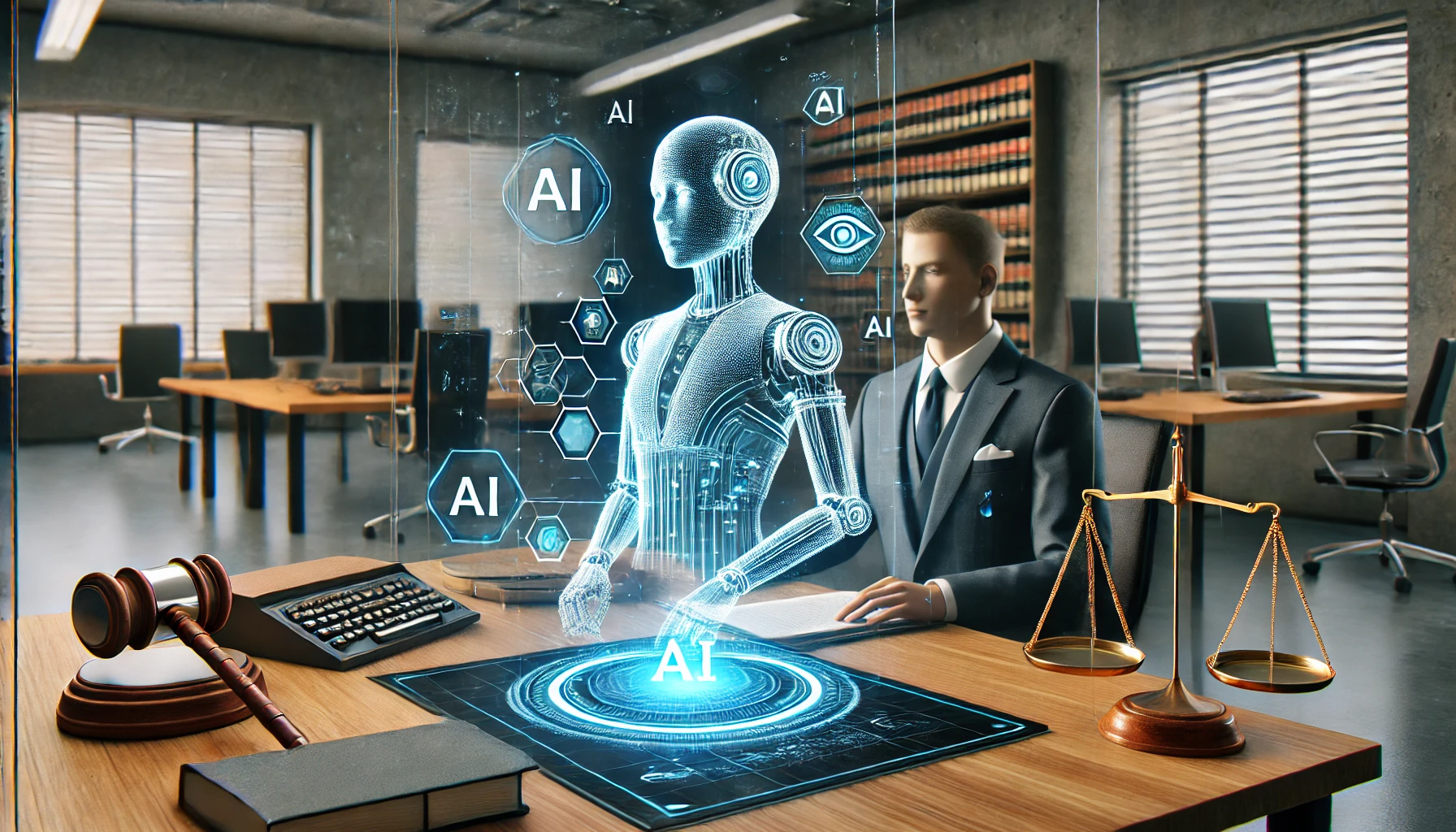Artificial Intelligence (AI) is revolutionizing the legal profession by automating contract analysis, improving case research, and enhancing access to justice. AI-powered tools assist lawyers, legal researchers, and even clients in navigating complex legal processes with greater efficiency. This article explores how AI is shaping the future of law.

Image: Digital transformation in the legal sector. Photo by Sora Shimazaki from Pexels, licensed under Pexels License.
1. The Role of AI in Modern Legal Practice: Automating Research, Documentation, and Litigation
AI is playing an essential role in the legal industry by:
Automating contract review and legal document processing.
Enhancing legal research through AI-powered case law analysis.
Improving access to justice with AI-driven legal assistance platforms.
By leveraging machine learning and natural language processing (NLP), AI can scan thousands of legal documents in seconds, identify relevant case laws, and streamline time-consuming legal tasks.
Key Insight: According to the 2024 Legal Technology Report, law firms that have implemented AI solutions report a 33% reduction in time spent on document review and a 40% increase in overall productivity.
2. AI in Contract Review and Smart Legal Documents: Reducing Errors and Saving Time
A. AI-Powered Contract Analysis
AI tools like Evisort and LawGeex use machine learning to review contracts, identify key clauses, and flag potential risks. This automation reduces errors and speeds up contract negotiations, saving lawyers and businesses valuable time.

Image: AI-assisted contract analysis in progress. Photo by Sora Shimazaki from Pexels, licensed under Pexels License.
B. Smart Contracts and Blockchain AI
AI-driven smart contracts, built on blockchain technology, automate legal agreements without human intervention. Platforms like Ethereum Smart Contracts ensure that contractual obligations are met based on pre-programmed conditions, enhancing security and transparency.
C. AI for Compliance and Regulatory Monitoring
AI-powered legal tech solutions, such as IBM Watson Compliance and Ayfie AI, help businesses navigate complex regulations by continuously monitoring legal changes and ensuring compliance with laws.
“AI is not replacing lawyers; it’s transforming how they work. By automating routine tasks, AI allows legal professionals to focus on the high-value, complex aspects of legal practice that require human judgment and creativity.” — Richard Susskind, Legal Technology Expert
3. AI in Legal Research and Case Law Analysis: Making Litigation More Efficient
A. AI-Driven Case Law Research
AI tools like ROSS Intelligence and Casetext CARA AI scan legal databases to find relevant case precedents, allowing lawyers to prepare arguments faster and with higher accuracy.
B. Predictive Analytics in Legal Decision-Making
AI-powered analytics tools, such as Lex Machina, analyze past case outcomes to predict the success of a lawsuit. This helps lawyers develop better legal strategies and advise clients more effectively.

Image: Legal professional analyzing case data with AI assistance. Photo by RODNAE Productions from Pexels, licensed under Pexels License.
C. AI in Jury Selection and Litigation Strategy
AI-driven platforms analyze juror behavior and sentiment, helping legal teams make informed decisions about jury selection and trial arguments. AI-powered simulations allow lawyers to test different legal strategies before presenting them in court.
Case Study: In a 2024 intellectual property trial, a law firm using AI jury selection technology achieved a 28% more favorable outcome compared to traditional methods, according to the Harvard Law Review on Legal Technology.
4. AI in Legal Assistance and Access to Justice: Making Law More Accessible to the Public
A. AI-Powered Legal Chatbots
AI chatbots like DoNotPay and LISA AI Lawyer provide automated legal advice, helping users understand their rights and complete legal documents without needing an attorney.
B. AI in Alternative Dispute Resolution (ADR)
AI-driven mediation platforms use NLP to analyze disputes and suggest fair resolutions, reducing the need for costly litigation. AI-powered negotiation tools help parties reach settlements faster.

Image: Online dispute resolution facilitated by AI technology. Photo by Mikhail Nilov from Pexels, licensed under Pexels License.
C. AI in E-Discovery and Digital Evidence Analysis
AI assists in electronic discovery (e-discovery) by scanning emails, documents, and digital records to find relevant legal evidence. AI-powered forensic tools detect patterns in financial transactions and uncover fraudulent activities.
5. The Future of AI in Law: What’s Next for AI in the Legal Industry?
The legal profession is on the verge of even more transformative AI applications:
AI-powered virtual law firms offering automated legal services for routine matters at a fraction of traditional costs, making basic legal services affordable for everyone.
AI-driven sentiment analysis to assess judicial opinions and court trends, allowing attorneys to tailor arguments to specific judges’ preferences and historical rulings.
AI-enhanced multilingual legal translation tools for global legal accessibility, breaking down language barriers in international law and improving access to justice worldwide.
“The future of law lies at the intersection of human expertise and artificial intelligence. The most successful legal professionals will be those who embrace technology as a partner rather than view it as competition.” — Gillian Hadfield, Law and Economics Professor
Conclusion: AI as the Future of Law and Justice
AI is revolutionizing the legal industry by improving efficiency, accuracy, and accessibility. From contract review to legal research and dispute resolution, AI-powered tools are transforming how legal professionals work and how clients access justice.
While AI will continue to automate routine aspects of legal practice, the human elements of legal work—strategic thinking, ethical judgment, and client counseling—remain irreplaceable. The most successful legal professionals will be those who effectively combine technological efficiency with human insight.

Image: The modern legal workspace combining AI technology with human expertise. Photo by Sora Shimazaki from Pexels, licensed under Pexels License.
Explore AI-driven legal solutions today and experience the future of smarter, faster, and more accessible law!
How do you think AI will continue to transform legal practice in the coming years? Share your thoughts in the comments below.

